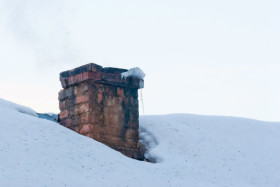Don’t Put off Your Chimney Repairs
Each fall, when temperatures start to drop, homeowners rush to have their chimneys repaired before the weather becomes cold, wet and snowy.
The urgency to schedule chimney repairs makes sense: The masonry materials used for many chimney repairs can’t be applied in wet or cold weather. That means if you don’t have your chimney repaired before winter weather sets in, your chimney repairs could be delayed until the weather breaks in the spring. And delayed repairs can leave your chimney susceptible to further damage this winter.
Water’s effects on an unrepaired chimney
Addressing chimney repairs
- Chimney cap replacement. Your chimney cap prevents water from running down your chimney’s flue. Chimney caps can rust or become dislodged. It is crucial to have a secure chimney cap in place before winter, as your chimney cap is your chimney’s primary defense against water.
- Chimney crown repair. Your chimney crown seals the top of your chimney to the flue and helps direct water away from the flue opening. Because chimney crowns are masonry structures, they can develop cracks or crumbles due to the freeze-thaw cycle. A damaged chimney crown should be repaired before winter, as damage can worsen and let water leak down your chimney’s interior.
- Tuckpointing. While your chimney’s bricks can last for generations, the mortar that holds them together isn’t so durable. Eventually, mortar will become fragile and begin to crumble away. Tuckpointing removes crumbling mortar joints and reseals them with fresh mortar. Crumbling mortar can lead to chimney leaks and can weaken your chimney’s structure. Over winter, mortar deterioration can worsen due to the freeze-thaw cycle.
- Flashing replacement. Flashing seals the base of your chimney at the roofline, preventing roof leaks around the chimney. Flashing can pull away from the chimney or develop holes or cracks over time, causing leaking. Ignoring compromised flashing could leave you with a major roof leak when winter’s wet weather strikes.
If your chimney is in need of repair, call Your Chimney Sweep to schedule an appointment today! We can assess your chimney and schedule repairs to save your chimney from further damage this winter.


